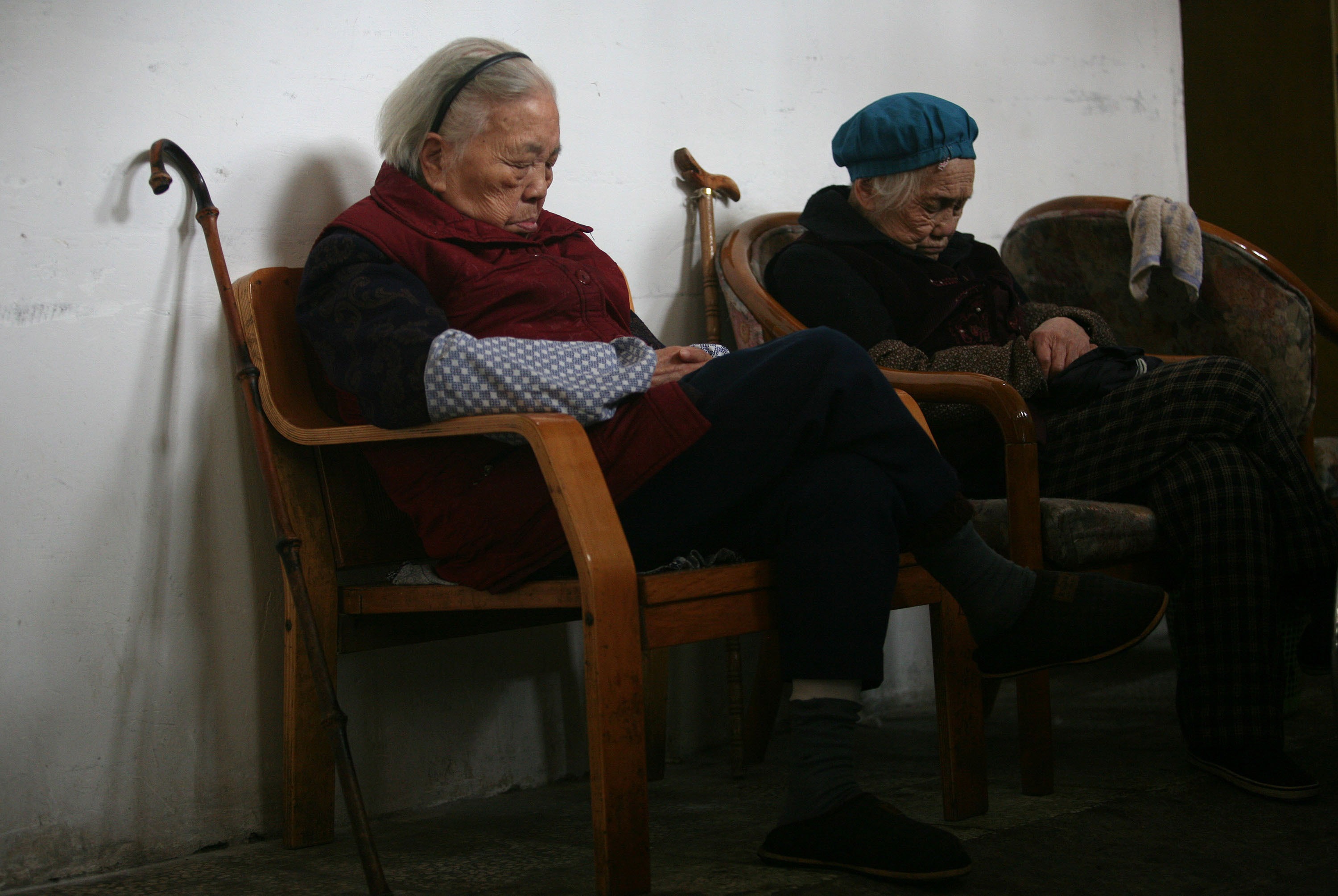[EpochTimesSeptember92021](Interviews and reports by Epoch Times reporters Luo Ya and Zhang Yujie) There are as many as 149 “deeply aging cities” in the mainland. Analysts told The Epoch Times that the problem of aging in the mainland is different from other countries. Behind this, there are also serious problems such as pension deficits caused by the corruption of the Chinese Communist Party and the deformed population structure caused by family planning. The pension crisis cannot be improved.
China’s “China Business News” recently reported that data on the age composition of the population of 336 cities above the prefecture level in the seventh census (2020) of the Chinese Communist Party showed that as of 2020, 149 cities in the mainland have entered a deep aging process, namely The population aged 65 and over accounted for more than 14%.
From the perspective of regional distribution, these 149 deeply aging cities are concentrated in the Northeast, the central region, the Yangtze River Delta, the middle and lower reaches of the Yellow River, and the Chengdu-Chongqing urban agglomeration. Among them, 41 are in the eastern coastal area, accounting for 27.5%; in the Northeast, there are 36, accounting for 24.2%; 72 in the central and western regions, accounting for 48.3%.
In terms of provinces, there are 149 cities distributed in 22 provinces, with the largest number being Sichuan Province, with 17 cities.
Mainland Economic Observer: China’s aging problem has its own characteristics
Mainland Economic Observer He Junqiao said in an interview with Epoch Times reporters on September 8 that “aging” itself is a global problem, but China’s aging problem is a problem of the pension crisis. The CCP’s pension fund deficit is serious, which directly affects China’s economy.
He Junqiao analyzed that the CCP did not establish any pension system from 1949 to 1979. After the “reform and opening up”, the pension system was established. However, the CCP’s severe corruption caused a large loss of wealth and led to a serious deficit in China’s pension funds.
He said: “(The pension crisis) has a great impact on China’s economy. In a few years, this peak of pension payments will come. I very much doubt whether it (the CCP) can cope with such a pension crisis. The big problem of China seems calm, but it is actually very, very troublesome. Therefore, it is not which city has entered this issue of aging, but the whole country has entered into the issue of aging for the elderly, which is very troublesome.”
He Junqiao predicts that in the next three to five years, the issue of the pension crisis will become very acute.
The Chinese Academy of Social Sciences published the report “China Pension Actuarial Report 2019-2050” in 2019, which mentioned that there were as many as 16 provinces in China that were not covered by pension income in 2019, including Inner Mongolia, Jilin, Liaoning, Qinghai, and Heilongjiang. Although it is above the warning line, the pension payment period is less than three months; in the next ten years, the provinces above the warning line will increase year by year.
Analysis: There is no solution to the problem of elderly care under the rule of the Chinese Communist Party
He Junqiao believes that from the current situation, China’s pension crisis cannot be improved. He said: “This is an economic problem, and it is a very serious economic problem. Just like an iceberg on the sea, it doesn’t look very good on the surface. In fact, the problem is huge, huge pension expenditure, serious corruption, and now China’s economic and political frictions with Western countries have no solution to China’s pension problems.”
Chinese American economist Li Hengqing also said in an interview with The Epoch Times reporter on September 8 that China’s aging problem is a very heavy burden for the future development of the entire Chinese economy, and there is no way to solve it, because the CCP’s dictatorship has already taken care of it. China has become a deformed society.
Li Hengqing analyzed that many countries in the world have experienced the process of aging, but the seriousness of China lies in “getting old before getting rich.” A big problem.
“The Communist Party’s family planning policy has directly led to hundreds of millions of fewer births in China, and the demographic structure is unbalanced. Now it allows two and three children to be born. However, education, medical care and other aspects are not guaranteed, and young people are unwilling to have them. This is very scary. One problem.” He said, “In the past, in order to promote family planning, the CCP promoted that “only child is good, the government will provide for the elderly”. Later, it became children to provide for the elderly. Now they say that children’s not providing for the elderly is irresponsible to society. This is because The Chinese economy is down, and the CCP cannot afford pensions anymore.”
Li Hengqing said that from the perspective of the overall economy, it takes at least 20 years to train a labor force, so this problem cannot be improved. “The CCP’s family planning policy has caused a very big tragedy for the entire Chinese nation.”
Wen Guanzhong, professor emeritus of the Department of Economics at Trinity College in the United States, told Radio Free Asia on September 7 that from these population figures, China’s economic crisis can be seen.
He said that in the past, relying on cheap labor to produce labor-intensive products and export large quantities, now this road is no longer possible; and the CCP’s system is not conducive to independent innovation, and the relationship between China (the CCP) and developed countries has deteriorated and the source of technology is difficult. Therefore, China will encounter bigger and bigger problems.”
Editor in charge: Li Qiong #
.
